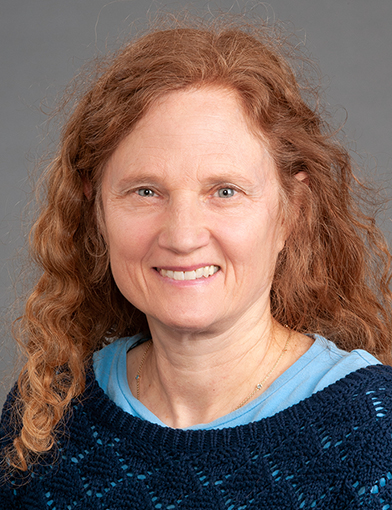The focus of the Biostatistics Shared Resource (BSSR) is to collaborate with and provide support to Atrium Health Wake Forest Baptist Comprehensive Cancer Center (AHWFBCCC) members by providing analytical expertise and rigor that enhances peer-reviewed research to reduce the incidence of cancer, improve response and survival, reduce morbidity, manage symptoms, improve health-related quality of life and translate important laboratory discoveries into clinical practice.
The BSSR is responsible for methodological, statistical and analytical issues that may arise during projects. It is also responsible for computational issues, including study design, sampling, statistical aspects of clinical trial monitoring, interim reviews and final analyses.
These responsibilities are encompassed within the BSSR’s four goals:
- Goal 1: Support investigator-initiated clinical protocol development, including developing appropriate statistical designs, preparing statistical sections and reviewing the statistical content of protocols submitted for review to the Protocol Review Committee of the Comprehensive Cancer Center.
- Goal 2: Provide operational and analytical support for clinical protocols, including monitoring patient accrual, providing support for quality assurance efforts and performing interim and final analyses when needed.
- Goal 3: Collaborate with Comprehensive Cancer Center investigators from all programs to provide statistical design and data analysis in support of grant development, abstracts, presentations and publications.
- Goal 4: Provide leadership, education and training in support of the Comprehensive Cancer Center mission, including participation in graduate-level courses, T32-supported training grants, mentoring teams for K awardees and other young investigators and leadership on committees responsible for scientific and administrative decisions for the Comprehensive Cancer Center, as well as conducting multiple seminar series on topics such as meta-analysis, survival analysis and early-phase adaptive designs for Comprehensive Cancer Center members.
Each Disease Group or Key Research Area has at least two named statisticians identified to provide statistical support to its members. This includes at least one faculty member and one staff-level statistician.
2. Valenzuela CD, Solsky IB, Erali RA, Forsythe SD, Mangieri CW, Mainali BB, et al. Long-Term Survival in Patients Treated with Cytoreduction and Heated Intraperitoneal Chemotherapy for Peritoneal Mesothelioma at a Single High-Volume Center. Ann Surg Oncol 2023;30:2666-75
3. Valenzuela CD, Moaven O, Solsky IB, Stauffer JA, Del Piccolo NR, Cheung T, et al. Conditional Survival After Hepatectomy for Colorectal Liver Metastasis: Results from the Colorectal Liver Operative Metastasis International Collaborative (COLOMIC). Ann Surg Oncol 2023;30:3413-22
4. Solsky I, Moaven O, Valenzuela CD, Lundy M, Stauffer JA, Del Piccolo NR, et al. Survival Outcomes of Optimally Treated Colorectal Metastases: The Importance of R0 Status in Surgical Treatment of Hepatic and Peritoneal Surface Disease. Ann Surg Oncol 2023
5. Sohl SJP, Tooze JAP, Levine BJP, Zeidan FP, Wheeler AP, Kelly MM, et al. A randomized pilot of eHealth mindful movement and breathing to improve gynecologic surgery outcomes. J Psychosoc Oncol 2023;41:251-66
6. Sohl SJ, Duncan PW, Thakur E, Puccinelli-Ortega N, Salsman JM, Russell G, et al. Adaptation of a Personalized Electronic Care Planning Tool for Cancer Follow-up Care: Formative Study. JMIR Form Res 2023;7:e41354
7. Smith MR, Wang Y, D'Agostino R, Jr., Liu Y, Ruiz J, Lycan T, et al. Prognostic Mutational Signatures of NSCLC Patients treated with chemotherapy, immunotherapy and chemoimmunotherapy. NPJ Precis Oncol 2023;7:34
8. Salsman JM, McLouth LE, Tooze JA, Little-Greene D, Cohn M, Kehoe MS, et al. An eHealth, Positive Emotion Skills Intervention for Enhancing Psychological Well-Being in Young Adult Cancer Survivors: Results from a Multi-Site, Pilot Feasibility Trial. Int J Behav Med 2023
9. Reed DR, Wooster M, Isom S, Ellis LR, Howard DS, Manuel M, et al. Real-world outcomes of adult patients with acute lymphoblastic leukemia treated with a modified CALGB 10102 regimen. Ann Hematol 2023;102:897-906
10. Razavian NB, D'Agostino RB, Jr., Steber CR, Helis CA, Hughes RT. Association of Unilateral Radiotherapy With Contralateral Lymph Node Failure Among Patients With Squamous Cell Carcinoma of the Tonsil: A Systematic Review and Meta-analysis. JAMA Netw Open 2023;6:e2255209
11. Pearce JB, Hsu FC, Lanier CM, Cramer CK, Ruiz J, Lo HW, et al. Five-year survivors from brain metastases treated with stereotactic radiosurgery: Biology, improving treatments, or just plain luck? Neurooncol Pract 2023;10:195-202
12. O'Connell NS, Wages NA, Garrett-Mayer E. Quasi-partial order continual reassessment method: Applying toxicity scores to cancer dose-finding drug combination trials. Contemp Clin Trials 2023;125:107050
13. Murphy KM, Chen E, Ip EH, Rosenberg AR, Snyder MA, Salsman JM. Properties of the Shift and Persist Questionnaire in adolescent and young adult cancer patients and survivors: Validity, consistency, and interpretability. Qual Life Res 2023;32:273-83
14. McLouth LE, Gabbard J, Levine BJ, Golden SL, Lycan TW, Petty WJ, et al. Prognostic Awareness, Palliative Care Use, and Barriers to Palliative Care in Patients Undergoing Immunotherapy or Chemo-Immunotherapy for Metastatic Lung Cancer. J Palliat Med 2023
15. Lycan TW, Jr., Buckenheimer A, Ruiz J, Russell G, Dothard AS, Ahmed T, et al. Team-Based Hospice Referrals: A Potential Quality Metric for Lung Cancer in the Immunotherapy Era. Am J Hosp Palliat Care 2023;40:10-7
16. Lucas AR, Pan JH, Ip EH, Hall DL, Tooze JA, Levine B, et al. Validation of the Lee-Jones theoretical model of fear of cancer recurrence among breast cancer survivors using a structural equation modeling approach. Psychooncology 2023;32:256-65
17. Klepin HD, Tooze JA, Bitting RL, Davis B, Pleasant K, Melo AC, et al. Study design and methods for the pilot study of muscadine grape extract supplement to improve fatigue among older adult cancer survivors (FOCUS) trial. J Geriatr Oncol 2023;14:101478
18. Kim Y, Franco RL, Lucas AR, Sutton AL, LaRose JG, Kenyon J, et al. Prevalence of Cardiovascular Diseases Among Breast Cancer Survivors: Findings From the NHANES 2003-2018. Am J Health Promot 2023;37:233-8
19. Gibbs KW, Forbes JL, Harrison KJ, Krall JT, Isenhart AA, Taylor SP, et al. A Pragmatic Pilot Trial Comparing Patient-Triggered Adaptive Pressure Control to Patient-Triggered Volume Control Ventilation in Critically Ill Adults. Respir Care 2023
20. French MJ, Wuerker R, Dugan G, Olson JD, Sanders BR, Tooze JA, et al. Long-Term Immunological Consequences of Radiation Exposure in a Diverse Cohort of Rhesus Macaques. Int J Radiat Oncol Biol Phys 2023;115:945-56
21. Foley KL, Dressler EV, Weaver KE, Sutfin EL, Miller DP, Jr., Bellinger C, et al. The Optimizing Lung Screening Trial (WF-20817CD): Multicenter Randomized Effectiveness Implementation Trial to Increase Tobacco Use Cessation for Individuals Undergoing Lung Screening. Chest 2023
22. Farris MK, Razavian NB, Hughes RT, Ververs JD, Snavely AC, Leyrer CM, et al. Bridging the Communication Gaps: A Prospective Single-Arm Pilot Study Testing the Feasibility of Interdisciplinary Radiotherapy Planning in Locally Advanced Lung Cancer. Acad Radiol 2023
23. Danhauer SC, Dressler EV, Brown WM, Nightingale CL, Brenes GA, Petty WJ, et al. Reducing Anxiety and Dyspnea via Device-Guided Breathing (RELAX): A Multi-Site Feasibility Study in Post-Treatment Lung Cancer Survivors at Community Cancer Clinics (WF-01213). Integr Cancer Ther 2023;22:15347354231164406
24. Cowan AE, Tooze JA, Gahche JJ, Eicher-Miller HA, Guenther PM, Dwyer JT, et al. Trends in Overall and Micronutrient-Containing Dietary Supplement Use in US Adults and Children, NHANES 2007-2018. J Nutr 2023;152:2789-801
25. Allen BC, Kapoor S, Anzalone A, Mayer KP, Wolfe SQ, Duncan P, et al. Transcranial ultrasonography to detect intracranial pathology: A systematic review and meta-analysis. J Neuroimaging 2023;33:333-58
26. Addington EL, Schlundt D, Bonnet K, Birdee G, Avis NE, Wagner LI, et al. Qualitative similarities and distinctions between participants' experiences with a yoga intervention and an attention control. Support Care Cancer 2023;31:172









